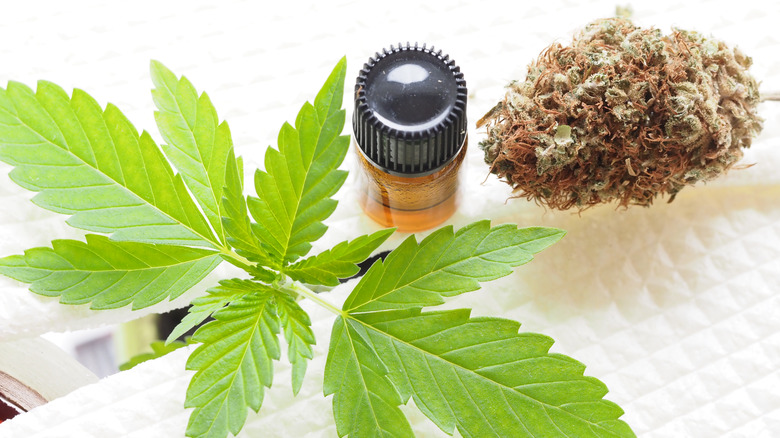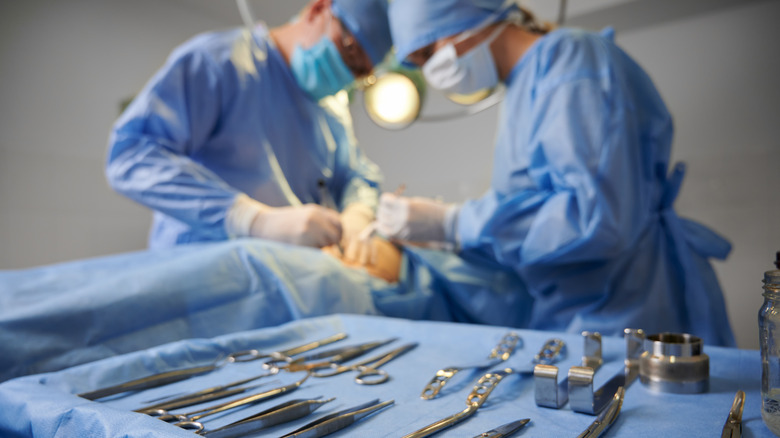New Study Explores If Marijuana Dependence Can Lead To Post-Surgery Complications
Doctors usually advise their patients not to eat or drink before having any kind of surgery. The National Health Service explains that this is because anesthesia temporarily stops your body's reflexes, and if there is any food or liquid in your stomach, there is a chance that it could make its way into your throat or lungs during a procedure. Smoking before surgery also increases the risk of blood clots, heart attacks, and pneumonia, per Cleveland Clinic. Similarly, smoking marijuana before surgery also has risks. The Advisory Board reports that because it raises a person's heart rate and lowers their blood pressure, it could lead to heart problems, including a heart attack. Breathing problems may also arise. In addition, patients who use marijuana may need more anesthesia than nonusers, and higher doses of anesthesia come with their own dangers.
New research reveals even more risks for people who use marijuana and are planning to have surgery. These include higher infection rates after minimally invasive knee and shoulder procedures. For the study, researchers examined 1,861,892 patients who underwent knee and shoulder surgery. Out of those, 21,823 were diagnosed with marijuana dependence.
Risk for certain conditions increased
The findings, published by the American College of Surgeons, showed that the patients classified as marijuana dependent saw rates of infection increase from 0.7% to 1.7% in shoulder procedures while the rates of deep vein thrombosis increased from 0.2% to 0.4%. For individuals undergoing knee procedures, the rates of infection increased from just over 1.1% to 2.6%, and the rate of developing deep vein thrombosis increased from 0.2% to 0.3%. The rates for pulmonary embolism remained the same for users and nonusers in both types of surgery.
Dr. Jason Strelzow, MD, assistant professor of orthopedic surgery at University of Chicago and coauthor of the study, says the findings suggest that "we would expect similar or larger effects with more open or invasive procedures," per the American College of Surgeons. He also added that doctors should be talking about these risks with patients and discussing alternatives, such as stopping marijuana use about six months prior to any kind of surgery. Harvard Health reports that patients should not eat any edibles before surgery either, because they are considered solid food and would violate fasting requirements.


